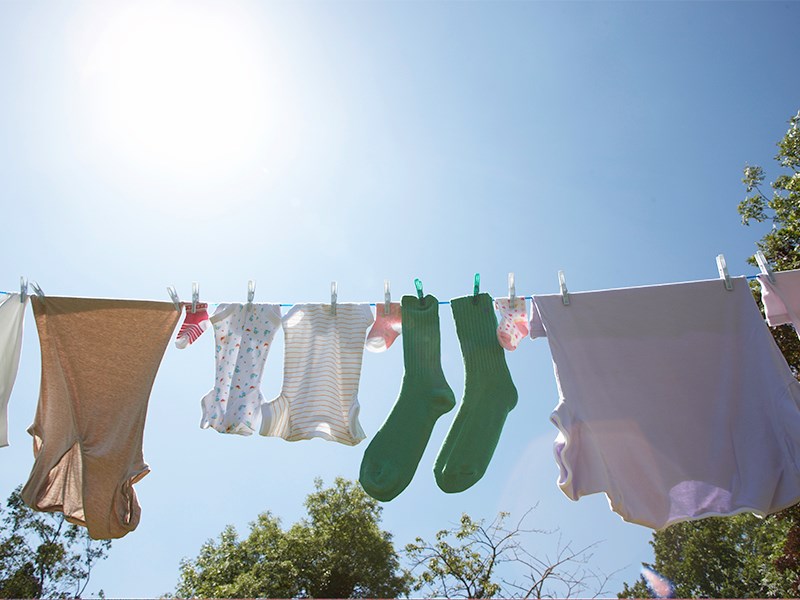It is laundry day and your goal is to emerge from the mountain of clothes and towels as efficiently as possible. As you sift through the pile, doing the inevitable sniff test, you may gaze at your shelf full of cleaning products and behold an ocean of plastic and chemicals. The good news is that it is possible to clean up our acts in the laundry room while also removing stains and smell. Here are some tips to help achieve that goal:
1. Wear clothes more than once; they will last longer.
2. Fill the washing machine up and use the cold cycle. Full loads are more efficient.
3. Leave chemically laden, heavily packaged laundry detergents behind. Opt for making your own using a few simple ingredients. Or, check out soap nuts, which naturally produce soap when agitated in water. They contain no dyes, artificial foaming agents, fragrances, sulphates or phosphates, so they are gentle on your skin and the ocean.
4. More soap does not mean cleaner clothes. Too much soap can actually leave a residue that attracts dirt.
5. Pre-soak stains in the sink to reduce the need for a second wash cycle. Hang to dry. Even on a wintery day, an indoor drying rack can do the trick, or invest in a clothesline for outside. The sun does not need to be shining, though it is always a bonus.
7. Discover antistatic-wool dryer balls, which significantly reduce drying time by lifting and separating clothes in the dryer while also reducing static.
8. Check clothing labels and choose natural fibres that will not contribute micro-plastics to waterways during the rinse cycle.
9. Give away clothes that do not fit your body or lifestyle, rather than tossing them out. If they are damaged, learn to do simple repairs, or cut them into rags for use around the house and garage.
Once you have changed your dirty laundry habits, you will breathe a chemical-free sigh of relief each time you look at your clothes hamper.
Let’s Talk Trash is Powell River Regional District’s waste-management education program.



